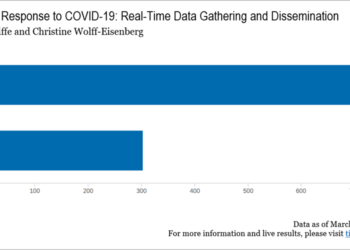Editor’s Note: Today’s post is by Susan Chavez and Chloe Fells. Susan and Chloe are graduate students in the Master of Professional Studies in Publishing program, College of Professional Studies, at the George Washington University, graduating in Summer 2020.
On January 29th, the Society for Scholarly Publishing (SSP) held its Washington, DC Regional Event, the Career Development Lab at The George Washington University’s (GWU) Gelman Library. Moderated by the George Washington University Publishing Director John W. Warren, a panel of four industry professionals answered questions about their career progression. On the panel were: Margaret Moerchen, the Director of American Geophysical Union Journals; Shannon O’Reilly, Senior Global Outreach Manager for the American Chemical Society; Puja Telikicherla, Licensing and Subsidiary Rights Manager for the American Psychiatric Association; and Jasmine Wallace, Peer Review Manager for the American Society for Microbiology. Sharing their unique perspectives and paths, these panelists guided people hoping to join the industry and advice to those already in publishing. But while the event may be over, don’t worry — we’ve collected our favorite takeaways in case you couldn’t make it.

Learn Everything
“Learn everything” was the most consistent advice given during the entire event. In publishing, success is found most often by being open to learning new skills, taking on new roles, and even re-learning what you think you already know. Jasmine Wallace described these as a balance between ‘hard’ and ‘soft’ skills. Most notably she stressed, “Learn to be uncomfortable.” Whether that means asking questions that might feel dumb, reaching out to a potential contact, or submitting a resume for a job you might not be sure you are 100% qualified for, being vulnerable and open to just trying is a critical skill to develop. And if your attempt turns out to be a mistake, that’s okay. As Shannon O’Reilly highlighted, while mistakes are uncomfortable, they can also be lessons from which to learn.
Puja Telikicherla expounded on this, reminding the crowd that every job has its problems, and when you encounter them, you’re faced with a choice: you can pass the problem off for someone else to handle, or you can take action. Whatever your job or career, if you stick only to your title’s main focus, you will be limited. Learning about the tasks and problems related to your role not only makes you more effective at your job, but can also make you truly indispensable. Who knows? You may even break into a realm you would never have discovered otherwise.
Don’t Be Afraid to Say “No”
While learning everything may sound like ‘always say yes,’ it is equally important to be able to say ‘no.’ Learning can open up new perspectives or paths, but there are still reasons to say no. As Jasmine Wallace stated, “join and take the opportunities to grow…and don’t be afraid to say ‘no’ in that space.” “I’m not afraid to say ‘no’ to anything,” Puja explained. You can say no, for instance, if you are assigned a task that you don’t feel comfortable with, are concerned about an issue (especially something ethical), or have responsibilities piled so high they have begun to negatively affect your quality of life. “I’m not going to avoid things I don’t understand,” but at the end of the day, it’s “about deep down knowing what speaks to you.” So, get out of your comfort zone, but know your limits; push them, don’t break them.
Find Mentors
One of the most common themes stressed throughout the panel was the importance of mentorships or strategic relationships. We all need someone to learn from, talk to, and share ideas with, but it can be difficult to find that person. In those hard times, especially, it can be tempting to look to a superior for guidance, but Puja warned against this. “Your boss and your mentor…are not necessarily the same.” In fact, your mentors are frequently not your boss. Making mentors and strategic relationships should be personal and beneficial to both of you. As Puja continued, “mentorship can and should mirror the other kinds of relationships we have in other parts of life,” and can even become friendships. Several panelists recounted anecdotes of strategic relationships in their own lives that started from simple things, from asking a neighbor to plug in their computer to small talk with a stranger at the coffee counter.
Yet these magical moments are, while serendipitous, somewhat hard to find. Margaret suggested reaching out online or over the phone to meet mentors instead of hoping for a fateful moment. “I found a lot of people doing what I thought I wanted to do…[and made] lots of cold calls, [and it worked!] You never know who a mentor is going to turn out to be.”
Get to the ‘Next Step’ (Or Don’t)
All the advice up to this point has been important to keep pursuing throughout your career, but what should you do to get to the ‘Next Step’? Whatever the reason for wanting to change — maybe your job has gotten tedious and you want to move, or maybe you are simply no longer happy where you are — the next step ultimately depends on what you want. If you want to change, do some self-reflection and once you know what you want, stop. It may be tempting to forge ahead here, but the pause is critical. As Puja explained, you have to “think about the ‘why’ before you think about what the next step would be.” Taking the time to do this gives you a chance to make more self-aware, objective plans about how to continue. Then you can dive in!
Once you have some kind of plan, Margaret advised, “try fearlessly jumping and applying,” even if you aren’t sure you are completely qualified for the job. Either you’ll get a job you love and realize just what you are capable of, or waste a little time sending in a resume and perhaps finding out what you need to know for next time. In the meantime, Shannon, a current member of the Master of Professional Studies in Publishing program at George Washington University explained, you can join committees, take courses, enroll in a publishing program, or get involved in any number of other things “showing you want to pursue knowledge.” Showing how serious and committed you are can truly speak volumes to your current or future boss.
Look to the Future
As the day wound down, the panelists took some time to discuss the future of the industry and upcoming trends. In many ways, it was a difficult thing to pinpoint. As John said, “It’s hard to say what will be a thing ten years from now.” Still, several main industry trends claimed the spotlight, nearly all of which fell under changes in technology. “Data analysis, XML…” Puja hypothesized. “If you can look at ONIX files day in and day out…that’s a major skill.” John added to this list, explaining, “A couple of things that I see getting more traction is multimedia…[and] artificial intelligence (AI). These are difficult things, and you don’t always have to be an expert in that, but being able to talk about it and think about it” can be crucial.
Jasmine looked outside of the industry box, discussing the usefulness of once publishing-focused skills and careers in other sectors and the need to be more willing to expand into those other fields. Using a specific example where copy editors were hired to use their skills to create teachable AI, such as applying copyediting and markup skills to code, she stated: “Our skills are becoming more transferable to other industries now…It’s not necessarily publishing, but looking a little bit outside of that may also be useful.”
Conclusion
It’s not often that four different perspectives from four very different individuals dovetail so well, but the guidance these panelists supplied gave inspiration, direction, and anticipation that a successful career in publishing can be achieved. Armed with this information, we will be ready to take the next step.
A special thanks to the event sponsors who made this conference possible: Editage, Edanz, Digital Science, Ingenta, and Silverchair. Thank you for your contributions and collaboration with SSP.
Discussion
1 Thought on "Guest Post: 5 Things Learned from The SSP DC Career Development Lab"
Thanks for sharing these insights and experiences from the SSP DC Career Development Lab, excellent to see and hear this news, and hope we can run more sessions like this … I continue to hear wonderful stories, connections, and outcomes from the SSP Mentoring Program, which in someway is needed more now than ever before.



